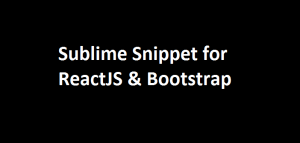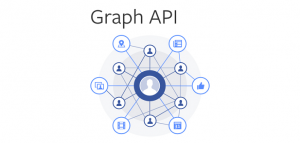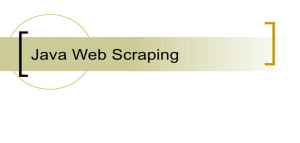Author Archives: Ajitesh Kumar
Sublime ReactJS Bootstrap HelloWorld Template for Quickstart

This article represents Sublime Snippet for quickstarting your ReactJS learning sessions with help of ReactJS-Bootstrap code for HelloWorld. It comes very handy for me and thought to share with you. Please feel free to comment/suggest if I missed to mention one or more important points. Also, sorry for the typos. Code Sample – Sublime Snippet for ReactJS Bootstrap Hello World Template In your sublime editor, go to Tools > New Snippet, paste the code below and save. Open a new file, save it as html file, write “rjshello” and press CTRL+Space bar. That is it. You would get the ReactJS Hello World code for quickstarting your project. The code …
Java – How to Get Users Tweets using Twitter HBC Http Client

This article represents code samples which could be used to retrieve users tweets for one or more Twitter users, using Twitter HBC Java client. Please feel free to comment/suggest if I missed to mention one or more important points. Also, sorry for the typos. Following are the key points described later in this article: Key Steps in Retrieving the Users Tweets Code Sample – Get User Tweets Key Steps in Retrieving the Users Tweets Following are key steps required to be taken to retrieve users tweets: Get consumer key and access tokens details Determine userId for users for whom you want to get the tweets as they appear. For test …
Java – How to Get Started with Twitter HBC Streaming API

This article represents instructions on how to get started with HBC, A Java HTTP client, for consuming Twitter’s Streaming API. Please feel free to comment/suggest if I missed to mention one or more important points. Also, sorry for the typos. Following are the key points described later in this article: How to get Twitter Consumer/Access Token Keys Instructions to Get Started with HBC How to get Twitter Consumer/Access Token Keys Before getting started with HBC API for integrating with Twitter API, make sure that you have acquired following four details from Twitter: Consumer Key Consumer Secret Access Token Access Secret Token All of the above keys could be started from …
Maven – How to Build Jar Files and Obtain Dependencies
This article represents facts on what would it take to build one or more jar files for a given framework/library using Maven, provided the framework’s downloadable files consisted of pom.xml. Please feel free to comment/suggest if I missed to mention one or more important points. Also, sorry for the typos. So far, whenever I came across pom.xml file in the framework that I downloaded in order to get the jar file, I hated it. I used to, then, go to internet and get the compiled jar file(s) for the framework/library. And, good thing is that I have been able to get my work done. This was purely out of my …
API – How to Get Started with Facebook API Integration

This article represents steps to get started with Facebook Graph API. In later articles, I shall explain how to integrate using Java and maybe other programming languages. The primary reason I am hooked to Facebook integration these days is my need for getting exploratory data from facebook for data analysis for my Big Data projects. Before getting onto use framework such as RestFB, it is recommended to play with these APIs in the Facebook-provided playground. I shall be talking in detail about how to get started with RestFB in later articles. Please feel free to comment/suggest if I missed to mention one or more important points. Also, sorry for the …
Java – How to Get Company Updates using LinkedIn API

This article represents code samples and changes that need to be done in original Linkedin-J framework (open-source) to get company updates of different types such as following: Job Posting Status Updates New Product Please feel free to comment/suggest if I missed to mention one or more important points. Also, sorry for the typos. Code Samples & Steps to Get Company Updates Following files need to be changed along with mentioned changes: LinkedinApiUrls.properties: Following code needs to be added under APIs mentioned under companies: com.google.code.linkedinapi.client.getCompanyStatusUpdates=http://api.linkedin.com/v1/companies/{id}/updates{queryParameters} LinkedInApiUrls.java: Following code needs to be added: public static final String GET_COMPANY_STATUS_UPDATES = linkedInApiUrls.getProperty(“com.google.code.linkedinapi.client.getCompanyStatusUpdates”); CompaniesApiClient.java: Following APIs need to be added: /** * Gets the …
Java – How to Scrape Web using Multi-threading (ExecutorService)

This article represents code examples on how to Scrape multiple URLs at once using Java Multi-threading API such as ExecutorService. The sole reason why I have been doing scraping lately is the need to get data from web to apply data analytics/science (machine learning algorithms) and extract knowledge from the data. Please feel free to comment/suggest if I missed to mention one or more important points. Also, sorry for the typos. Following are three different methods whose code samples have been presented below: scrapeURLs that takes input file consisting of URLs to be scraped and output file where the output needs to be written scrapeIndividualURLs which takes as an argument, URL …
Java – How to Create Binary Search Tree for String Search
This article represents code samples and high level concepts for creating a binary search tree to do String related operations such as some of the following: Search one or more words Replace word with new word Find number of occurences of a given word in a string For those who are new to Binary Search Tree, note that Binary Search Tree is defined as tree that satisfy some of the following criteria: Each node in the tree has at most only two children Each node is represented with a key and associated data Key in left children is less than the parent node and key in the right node is …
Java – How to Create a Binary Search Tree
This article represents the high level concept and code samples which could be used to create a binary search tree in Java. Please feel free to comment/suggest if I missed to mention one or more important points. Also, sorry for the typos. Following are the key points described later in this article: What is a binary search tree? What are different kind of traversals? Code Samples What is a binary search tree? A binary search tree is a binary tree in which every node contains a key that satisfies following criteria: The key in left child is less than the key in the parent node The key in the right …
Java – One-Liner Lambda Expression to Print Map/List Objects
This article represents code samples to print element of collections such as Map and List/Set using lambda expression. I just love it as it has made life so simpler by helping me achieve this using just one line of code. Please feel free to comment/suggest if I missed to mention one or more important points. Also, sorry for the typos. Following are the key points described later in this article: Print Map key-Value Pair using Lambda Expression Print List value using Lambda Expression Print Map key-Value Pair using Lambda Expression Pay attention to forEach function that takes a reference to BiConsumer function interface and prints the key and value. This …
Data Science – Top 5 Videos to Get Started with Neural Networks

This article represents some good youtube videos that I found useful to get started with understanding how brain works and what is neural networks. Note that I needed to do this as I wanted to get started with machine learning and neural network algorithm. In order to do that effectively, I needed to understand what are neural networks and videos below helped me get started within an hour. Please feel free to suggest other great videos which I may have missed. Sorry for the typos. From Neurons to Networks I would rate it as the one of the best videos I saw on how human brain works. MUST watch!!! …
Java – Map & BiConsumer Function Lambda Expression Example
This article represents code samples representing lambda expression and the related ease with which one could print key and value of a Map object using one liner. Please feel free to comment/suggest if I missed to mention one or more important points. Also, sorry for the typos. Code Sample – Printing Map using BiConsumer Functional Interface Following is detail for Map.forEach API in Java 8. Read further on this page. default void forEach(BiConsumer<? super K,? super V> action) Performs the given action for each entry in this map until all entries have been processed or the action throws an exception. Unless otherwise specified by the implementing class, actions are performed in …
Java – How to Scrape Content from a URL

This article represents take-away code sample that could be used to get or scrape content from a given URL. Those wanting to do a quick web scrape could use this piece of code. I shall be posting a series of blogs which would help one to create a web scraper using Java. The reason why I am hooked to Java web scraping is the need to get the data from web for data analysis. Please feel free to comment/suggest if I missed to mention one or more important points. Also, sorry for the typos. Code Sample – Get Content from URL Pay attention to some of the following aspects of fetching …
Data Science – 3 Key Aspects of Applying KMeans Algorithm for Clustering Tasks
This article represents key concepts around KMeans algorithm including key aspects and formula/R command when you are working on clustering tasks. Please feel free to comment/suggest if I missed to mention one or more important points. Also, sorry for the typos. Following are the key points described later in this article: Key aspects of applying KMeans algorithm KMeans Algorithm – R Command Key aspects of applying KMeans Algorithm Key aspects of applying KMeans algorithm are following: Selecting a right combination of features set: On the data set on which you may observe some of the following: There are one or more features having non-numeric or character data sets. As …
Data Science – R Packages & Methods for naive Bayes Classification

This article represents different R packages and related methods which could be used to create a naive Bayes classifier. Please feel free to comment/suggest if I missed to mention one or more important points. Also, sorry for the typos. Following are the key packages described later in this article: TM WordCloud e1071 Gmodels Following is a list of R packages that could be used for naive Bayes classification: TM Package: Originally created by Ingo Feinerer as a dissertation project at the Vienna University of Economics and Business, tm package is a very popular package that provides a framework for text mining applications within R. More about TM package could be …
Learn R – How to Fix Read.Table Command Reading Lesser Rows
This article represents the problem statement related with read.table reading fewer or incorrect or lesser number of lines or rows when reading a text file having multiple columns, and the solution to the same. This is going to be a shorter blog. But since it solved a problem on which I spent some time, I chose to write about the same. Please feel free to comment/suggest if I missed to mention one or more important points. Also, sorry for the typos. Problem Statement: Reading Fewer Lines with read.table Command I have been learning the naive bayes classification. I downloaded this SMS collection data. I went ahead and tried to load …

I found it very helpful. However the differences are not too understandable for me